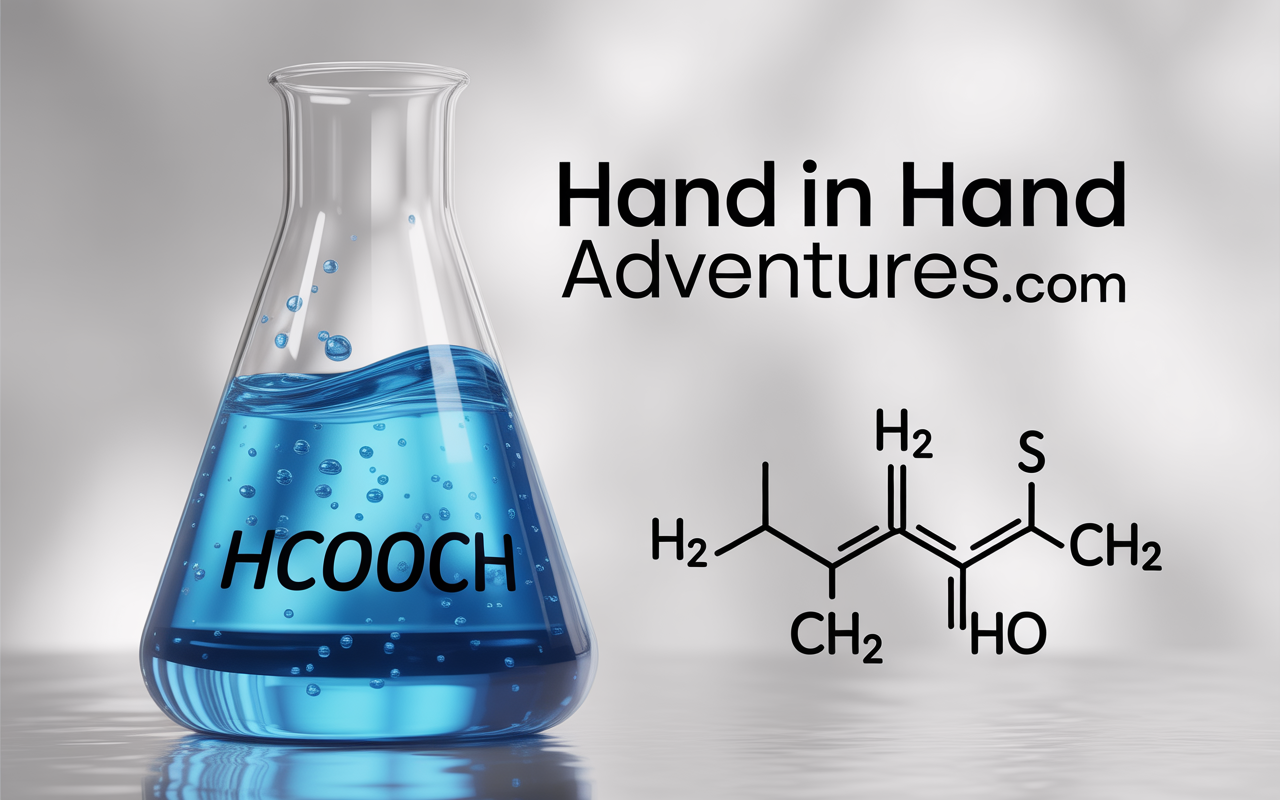Water is often referred to as the universal solvent, but its role in chemical reactions goes far beyond just dissolving substances. When we talk about Hcooch Ch2 H2o, we’re diving deep into a fascinating world where water plays an essential part in various chemical processes. From speeding up reactions to acting as a medium for countless interactions, water’s significance cannot be overstated.
In this exploration, we’ll uncover how Hcooch Ch2 H2o interacts with other compounds and why it is crucial for both simple experiments and complex industrial applications. Get ready to discover the magic of water in chemistry!
The Importance of Water in Chemical Reactions
Water is often called the universal solvent, and for good reason. It plays a crucial role in chemical reactions across various disciplines, from biology to industrial chemistry.
In many cases, reactions occur in aqueous solutions where water acts as a medium. This allows reactants to interact more effectively, enhancing the probability of collisions that lead to successful reactions.
Moreover, water can influence reaction pathways and product formation. Its unique properties—like polarity and hydrogen bonding—facilitate ionization processes essential for certain biochemical reactions.
Additionally, temperature regulation within aqueous environments helps maintain optimal conditions for enzymatic activity. This stability promotes efficient reaction rates that are vital in living organisms.
Without doubt, water is more than just a passive participant; it actively shapes the outcome of countless chemical processes every day.
How Does Water Affect the Rate of Reaction?
Water plays a crucial role in chemical reactions, acting as both a solvent and reactant. Its unique molecular structure allows it to facilitate interactions between different substances.
When water is present, it can break down complex molecules into simpler forms. This process often accelerates the reaction rate, making it easier for reactants to collide effectively.
Temperature also influences how quickly reactions occur in aqueous solutions. As water heats up, molecules gain energy and move faster. This increased motion leads to more frequent collisions among particles.
Additionally, the polarity of water helps stabilize charged ions produced during reactions. By surrounding these ions with hydration shells, water enhances their reactivity and availability for further interaction.
Understanding how water impacts reaction rates is essential for chemistry enthusiasts aiming to manipulate conditions for desired outcomes in experiments or industrial processes.
Examples of Reactions Involving Water
Water plays a vital role in many chemical reactions. One of the most common examples is hydrolysis. In this reaction, water breaks down compounds into simpler substances. This process occurs during digestion when enzymes help break down food molecules.
Another significant reaction involving water is photosynthesis. Plants use sunlight to convert carbon dioxide and water into glucose and oxygen. This transformation fuels life on Earth by providing energy for plants and, consequently, other organisms.
Combustion reactions also involve water formation as a product. When hydrocarbons burn, they react with oxygen, producing carbon dioxide and water vapor.
Additionally, acid-base reactions often occur in aqueous solutions where water acts as the solvent. The interaction between acids and bases can lead to neutralization, resulting in salt and more water being produced.
Each example shows just how essential Hcooch Ch2 H2o is for various processes across different fields of chemistry.
Common Misconceptions about Water in Chemistry
Water is often taken for granted in chemistry, leading to several misconceptions. One common belief is that water simply serves as a passive solvent. In reality, it actively participates in reactions, influencing outcomes significantly.
Another myth suggests that all chemical reactions involving water are slow. This isn’t true; the presence of water can actually accelerate many reactions by providing an ideal environment for molecular interaction.
Many also assume that any amount of water will suffice in experiments. However, the quality and quantity of water used can drastically alter reaction dynamics and results.
Some people think pure distilled water is always the best choice. Yet, impurities or specific ions might enhance certain reactions, making regular tap water more effective under specific conditions.
Understanding these misconceptions helps chemists harness the full potential of Hcooch Ch2 H2o in their studies and experiments.
Tips for Using Water in Experiments
When using water in experiments, always consider its purity. Distilled or deionized water is best for sensitive reactions.
Temperature plays a crucial role too. Slight variations can alter reaction rates, so maintain consistency throughout your experiment.
Be mindful of the volume. Too much water can dilute reactants excessively, while too little might skew results. Measure accurately to ensure precision.
Using a controlled environment helps mitigate external variables that could affect outcomes. Keep your workspace free from contaminants and fluctuations in temperature.
Don’t overlook documentation. Record every detail regarding the type of water used and any noticeable changes during reactions to help replicate results later on.
Embracing the Power of Water in Chemical Reactions
Water plays a vital role in the world of chemistry, particularly when it comes to reactions involving Hcooch Ch2 H2o. Its unique properties make it an essential medium for facilitating various chemical processes. By understanding how water influences reaction rates and mechanisms, scientists can harness its power more effectively.
As we explore the myriad ways that water interacts with chemical substances, it’s clear that this simple molecule is anything but ordinary. From acting as a solvent to participating directly in reactions, water’s versatility is unmatched.
Embracing the role of water not only enhances our experiments but also deepens our appreciation for this fundamental compound within the realm of chemistry. Whether you’re conducting research or simply curious about chemical interactions, recognizing the importance of water will undoubtedly enrich your experience and knowledge in science.

